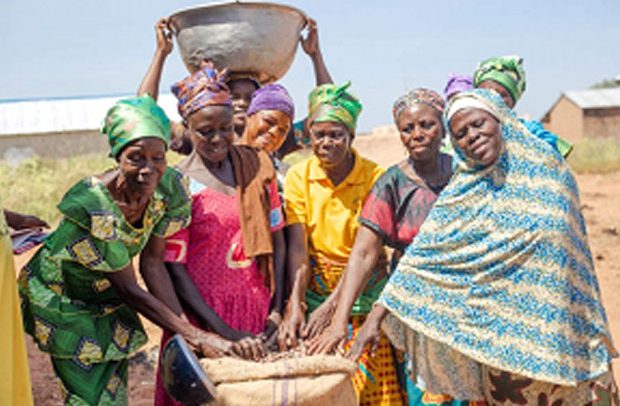Some women shea collectors
The Global Shea Alliance (GSA), in partnership with the Enhanced Integrated Framework, (EIF) has launched a US$3.6 million regional programme dubbed “Supporting the Inclusive Commercial Development of the Shea Value Chain.”
The initiative will facilitate exports of shea kernels and value-added shea products from Benin, Burkina Faso, Mali and Togo.
It will stimulate pro-poor growth by expanding demand for value-added shea products, supporting small businesses to access international markets and improving trade-related incomes for women collectors and processors.
The project aims for the following results: increase shea trade by 28,880 metric tonnes per year provide productive infrastructure and build the capacity of 30,660 women shea collectors and processors in the four countries; support the export readiness of 2,180 SMEs; improve trade engagement between Africa and Asia through the online market platforms, conferences, trade shows as well as policy initiatives.
This regional project will be implemented in close coordination with the EIF units in the four targeted countries.
Ratnakar Adhikari, Executive Director of the EIF said: “Investing in and supporting the growth of the shea industry is key to promoting economic diversification, value addition and growth through regional trade in the selected least developed countries in West Africa.”
Badie Marico, the President of GSA, expressed optimism that the initiative would help to improve incomes of shea collectors and processors, as well as support the industry growth in regional and international markets.
The GSA is a non-profit industry association with 500 members from 35 countries including women’s groups, brands and retailers, ingredient suppliers and NGOs. Through public-private partnerships, the GSA promotes industry sustainability, quality practices and standards, and demand for shea in food and cosmetics.
The EIF is the only multilateral partnership dedicated exclusively to assisting least developed countries (LDCs) in their use of trade as an engine for growth, sustainable development and poverty reduction.

